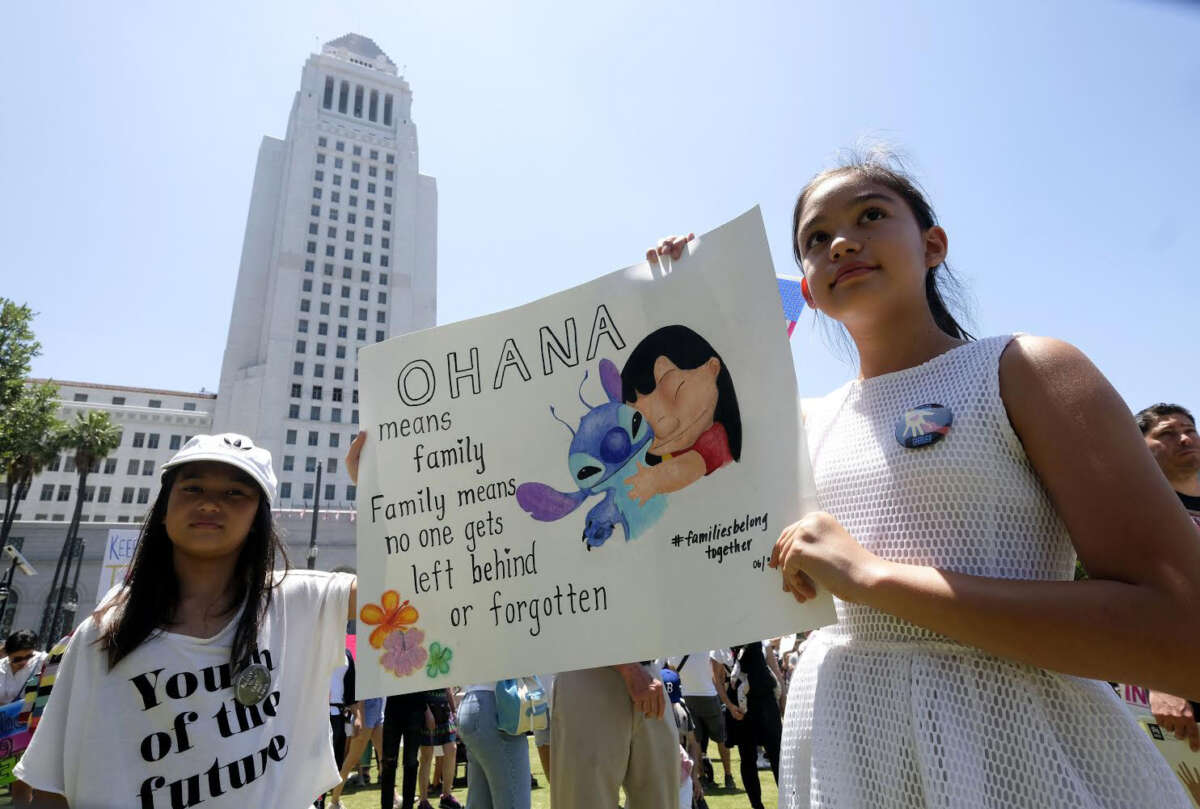Honest, paywall-free news is rare. Please support our boldly independent journalism with a donation of any size.
Florida Gov. Ron DeSantis is poised to sign a sweeping anti-immigration bill that would enact the most punitive policies for undocumented workers in any state in the country.
SB 1718, which passed the Florida legislature last week, would bar local governments from contributing money to organizations that create identification cards for undocumented people, ban the use of legally issued out-of-state driver’s licenses to noncitizens, and prohibit undocumented immigrants who were part of the Deferred Action for Childhood Arrivals (DACA) program from practicing law in the state.
The law also strengthens employment requirements, increases penalties for anyone who “knowingly and willfully transports into this state” undocumented immigrants from outside of the country, and mandates that hospitals that receive state and federal Medicaid reimbursement report “the costs of uncompensated care for aliens who are not lawfully present in the United States.”
The ACLU of Florida has denounced the bill, saying that it will exacerbate racial profiling by law enforcement and that it amounts to an “abuse of state power.”
“In a state as diverse as Florida, this bill puts many people at risk,” said Kirk Bailey, the political director of the ACLU of Florida. “It incentivizes racial profiling of a breadth of Floridians and creates a ‘show me your papers’ environment. It actively seeks to criminalize Floridians, hurts businesses and our economy, and undermines our public health system.”
More than one in five Florida residents is an immigrant, according to the American Immigration Council and the Migration Policy Institute. The institute estimates that more than 770,000 immigrants in the state are undocumented, making the bill one of the most far-reaching and harmful anti-immigrant measures in the country.
“Nearly 20 percent of Floridians are immigrants — a bill that directly harms a fifth of our population has no place in our state. Plainly put, this bill is disgraceful,” said Bailey.
The Florida Immigrant Coalition (FLIC), which has issued a travel advisory for the state, has warned that the bill will open “the floodgates for racial profiling and abuse of power.”
“DeSantis and his legislature are leading the way in turning back the clock on human rights and descending us into a truly draconian state where residents live in fear of a government that overreaches into every corner of their lives and divides to conquer,” FLIC said in a statement.
The bill also includes a measure that would authorize $12 million in funding for the “Unauthorized Alien Transport Program,” a program under the Division of Emergency Management that transports immigrants to sanctuary cities in what many observers have denounced as “cruel” and “heartless” political stunts. Last September, Governor DeSantis authorized the program to fly 48 migrants from San Antonio, Texas, to Martha’s Vineyard under false pretenses, prompting a lawsuit by immigrant-advocacy groups. The lawsuit was later dropped after the case was mooted by a change in the state budget that had funded the program.
Claudia Navarro, the co-executive director of WeCount!, a South Florida organization that advocates for better working conditions for undocumented workers, told Prism that the bill’s passage has prompted concern that lawmakers will introduce similar laws across the country.
“We know that with legislators that are anti-immigrant across the country, they do look to other states for leadership to see what can be possible,” said Navarro. “I have no doubt that legislation is going to start being introduced if it hasn’t already been across the state, across the country. And I think what we’ve been hearing, first and foremost, is a hesitation to even be visible.”
Those concerns were echoed by an attorney with the Southern Poverty Law Center (SPLC) Action Fund.
“SB 1718 will push hundreds of thousands of people into the shadows — documented, undocumented; inspected, uninspected; authorized, unauthorized. It’s detrimental to public safety,” said Paul Chávez. “[The bill] is frankly astonishing and represents an unprecedented attack on Florida’s immigrant community.”
Media that fights fascism
Truthout is funded almost entirely by readers — that’s why we can speak truth to power and cut against the mainstream narrative. But independent journalists at Truthout face mounting political repression under Trump.
We rely on your support to survive McCarthyist censorship. Please make a tax-deductible one-time or monthly donation.
